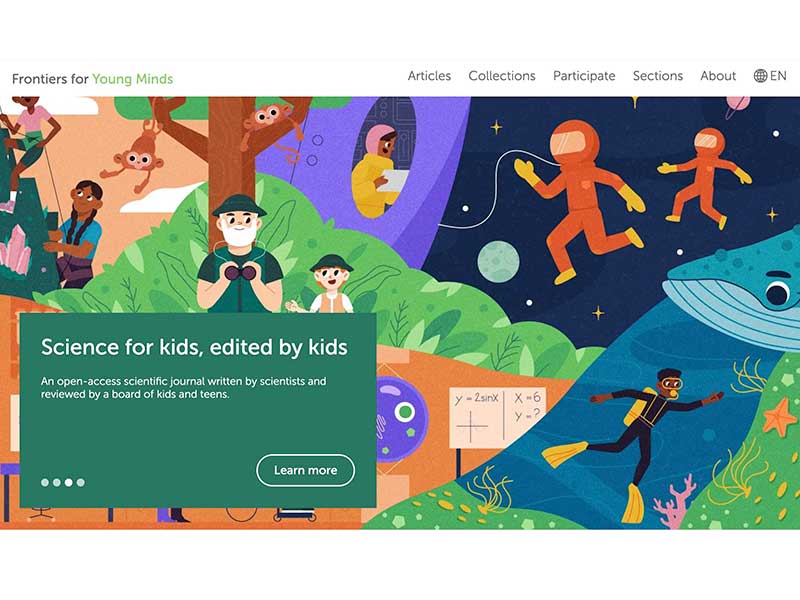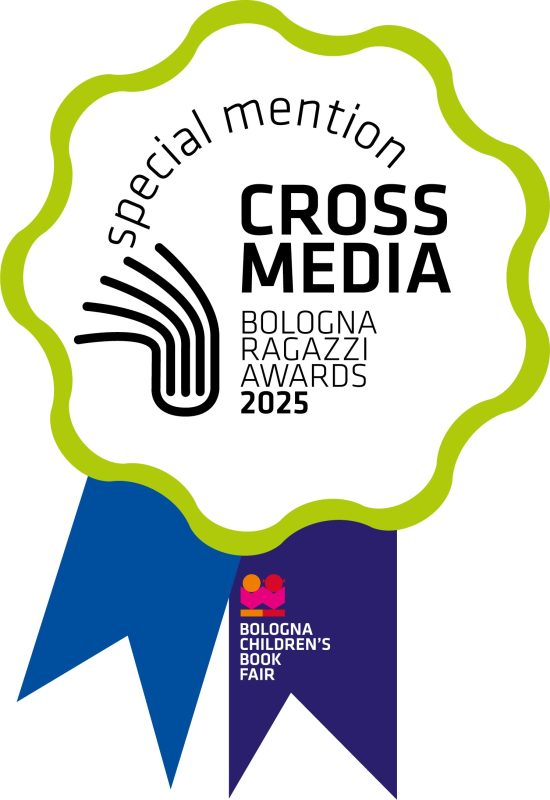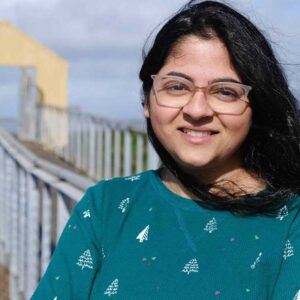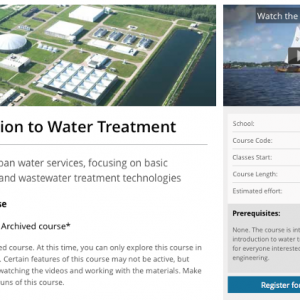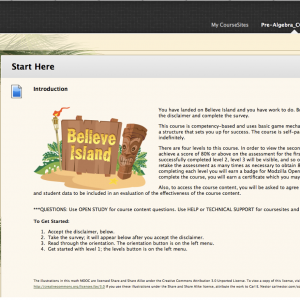Frontiers for Young Minds is a unique science engagement platform for kids, which is fully and freely accessible online. Now 10 years old, it has achieved significant global impact, publishing 1400+ articles and garnering 40+ million views and downloads from 230 countries and territories. We have also invested in expanding our impact to kids in their native languages: we publish in English, Hebrew and Arabic, and we launched Chinese and French versions in 2023.
And we go further – we don’t just publish good OER science articles, we actively engage our young audience in the process. Each article we publish is written by top researchers, including 30 Nobel Prize winners (example), and is then peer-reviewed by young students aged 8-15, to ensure that everything is clear, accessible and engaging for their peers. Under the guidance of Science Mentors, based locally in 65 countries worldwide, we have directly worked with 8500+ Young Reviewers, who get to give direct feedback to our authors on how to make the best possible articles – clear and fun to read – for readers their own age.
Here are a few short testimonials from different participants in our unique process:
“What a marvelous contribution to the all-important education of young minds. It’s greatly encouraging that [the journal] is successful.”
– Roger Kornberg (Nobel Prize Winner), Author
“This is such a worthwhile effort! Everyone involved had a good experience. The young reviewers all enjoyed the articles and being part of the process, the science mentors enjoyed working with the kids, and the authors enjoyed a new (and challenging) style of writing that will reach a different audience than usual. Thank you for the opportunity!”
– Nina Chambers (National Parks Service, US), Editor
“It is a privilege to be part of the publication process [sharing] innovative and relevant research to a younger audience.”
– Lucette Garget (Open University, UK), Science Mentor
“It’s a great educational experience for kids to get a better understanding of the academic world.”
– Nan Lin (Beijing Tiantan Hospital, China), Science Mentor
“We think that being Young Reviewers will expand our own horizons of knowledge and help researchers and scientists with their work!”
– King Edward VI Grammar School, years 7-10, Young Reviewers
“I am very excited to write this review from my point of view. …. I found this article overall very interesting, once I understood everything – when I understood the article, it made me want to find out more.”
– Delara, aged 11, Young Reviewer
Follow Frontiers for Young Minds on X
Young Reviewers learn not only about the latest science but also about how science works, as they are coached by Science Mentors all about the crucial peer-review stage of the research process, and they gain critical thinking skills for life. And our respected academic authors learn too – how to communicate outside their own research fields and enable the young leaders of tomorrow’s world to understand the scientific breakthroughs of today. Researchers are delighted to make a truly global impact with us, as they receive on average, in just the first months after publication, 5-10K reads per article.
Award NominatorThis is an incredible initiative to foster science for young kids. Not only are difficult topics made available through papers from renowned authors, but peer review is conducted by kids, mentored by an adult scientist.
Award ReviewerAward ReviewerThis is a fabulously engaging and established resource available in multiple languages, richly illustrated and engaging. The mobile optimisation of the platform is excellent and the impact data is impressive, suitably so for this category of award
Explore more about this awardee…
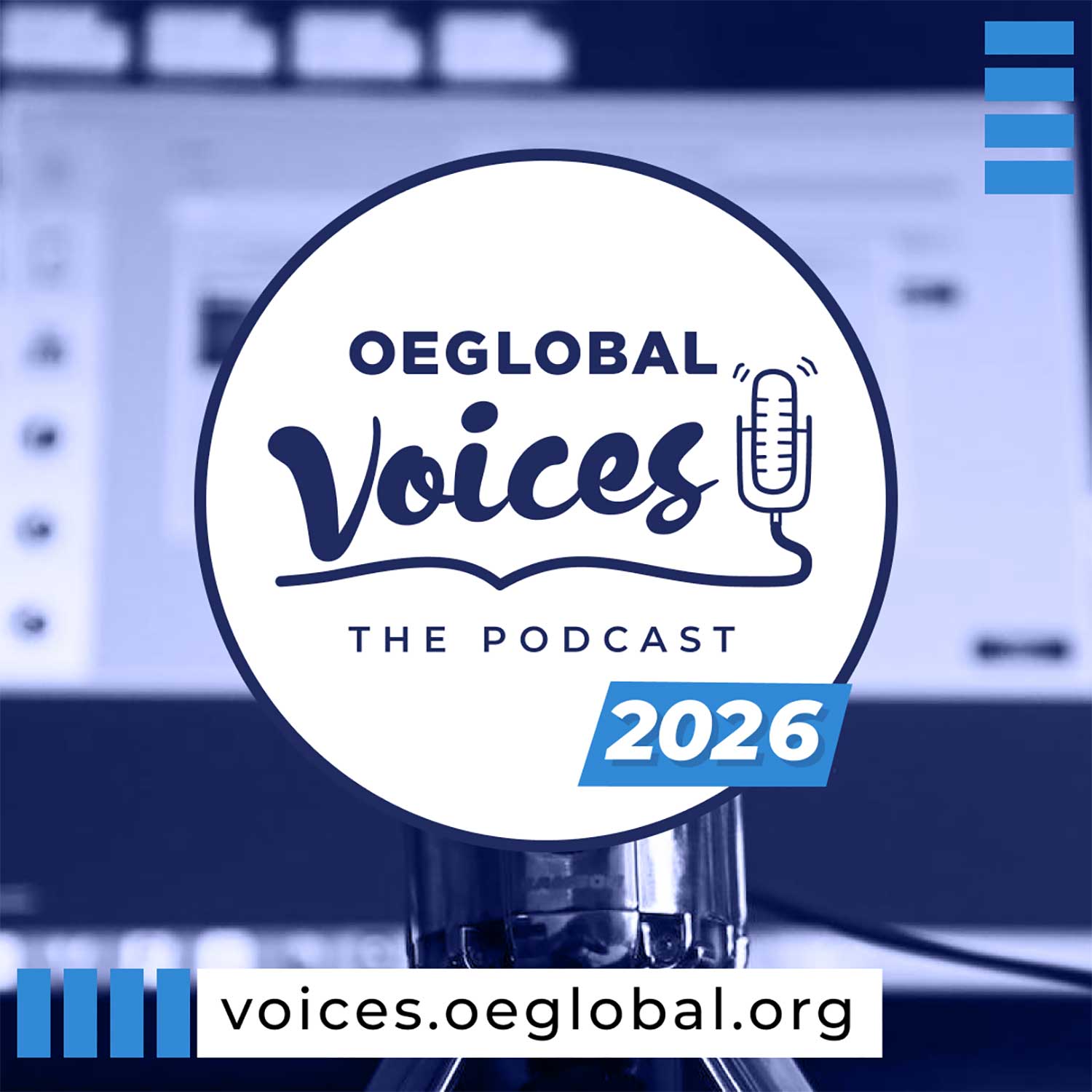
Podcasts from Open Education Global
Put this episode of OE Global Voices on your “Must Listen List” and be prepared for waves of inspiration and awe for Frontiers for Young Minds, an outstanding project that publishes on the order of 250 papers a year on complex areas of science. But more importantly, these papers are written for kids and reviewed by kids in a process that, when you hear it, will make it clear why Frontiers for Young Minds was recognized with a 2024 Open Education Award for Excellence in the Significant Impact category.
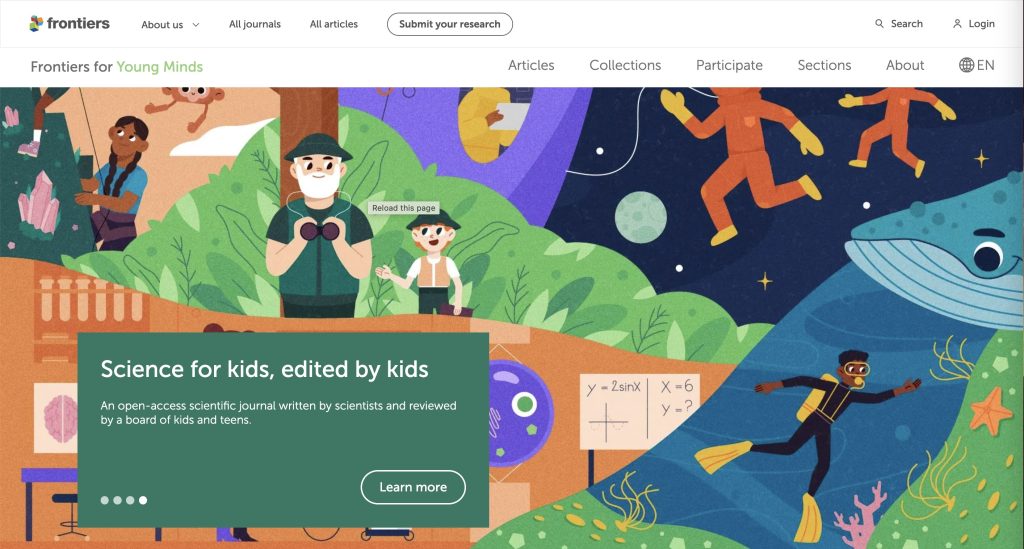
Frontiers for Young Minds believes that the best way to make cutting-edge science discoveries available to younger audiences is to enable young people and scientists to work together to create articles that are both top quality and exciting.
Distinguished scientists are invited to write about their discoveries in a language that is accessible for young readers, and it is then up to the kids themselves – with the help of a science mentor – to provide feedback and explain to the authors how to best improve the articles before publication.
This unique process produces a collection of freely available scientific articles by leading scientists, shaped for younger audiences by the input of their own young peers.
In this episode we will learn more about the journal and its publishing process, but also dive into an example of how a paper on the science of secrets was drafted by clinical psychologists at Erasmus University Rotterdam (The Netherlands), reviewed by kids in the Science Club at Disley Primary School (United Kingdom) mentored by neuroscientist Caroline Lea-Carnall at the University of Manchester (United Kingdom) and then published in the Frontiers for Young Minds journal as Shhh! What Are Secrets and How Do They Affect Us?
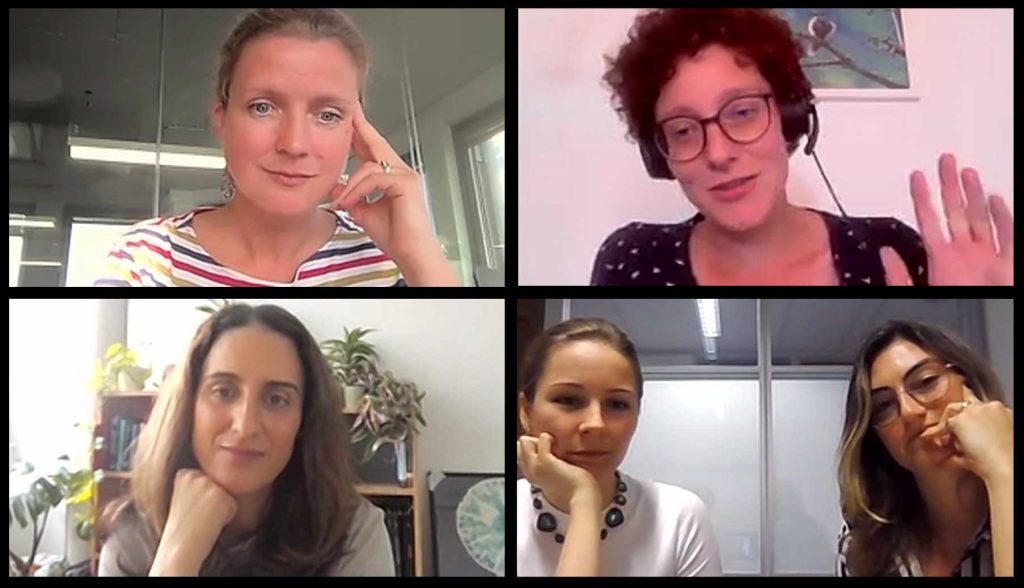
at Descript.com
In This Episode
FYI: For the sake of experimentation and the spirit of transparency, this set of show notes alone was generated by the AI “Underlord” in the Descript editor we use to produce OEGlobal Voices.
In this episode of OE Global Voices, host Alan Levine delves into the inspirational story behind the award-winning project, “Frontiers for Young Minds,” which uniquely involves children in the peer-review process of scientific articles aimed at young readers. Alan engages with key figures including Laura Henderson, head of the program, along with contributors and reviewers Caroline Lea-Carnall, Hedwig Ens, Ildikó Csizmazia, and Minita Franzen. They discuss the project’s origins, its mission to make complex scientific concepts accessible and engaging for kids, and the enriching experience it provides for both young reviewers and established scientists. The conversation highlights the project’s significant impact on science communication and education, celebrating its collaborative spirit and success in fostering a new generation of science enthusiasts.
- Intro Music, Opening Quotes, and Welcome
- Meet the Guests: Laura Henderson and Team
- The Origin Story of Frontiers for Young Minds
- The Review Process: Kids as Gatekeepers
- The Impact of the Project on Kids and Scientists
- Future Plans and Closing Remarks
(end of AI generated show notes)
Additional Links and Quotes for Episode 78
It was very interesting to see their thinking was about the whole idea. There were places where we [thought] this might be an important part to share, but there is not really much research on that so we cannot say anything.
So I just didn’t [add] anything in the article. And then kids were like, “Okay, but can you tell us something about it? Is there research on it?” I liked that feedback.
They also picked up on the positive things — this made us enthusiastic to continue to incorporate their feedback. And we really thought we are contributing and doing something that younger readers also find very important.
Ildikó Csizmazia on responding to the reviewers
- 2024 OE Award for Excellence Significant Impact Award (OE Global)
- Frontiers Research Foundation
- Frontiers in Science (Research Journal)
- Bob Knight (UC Berkjely, co-founder of Frontiers for Young Minds)
- UC Berkeley neuroscience professor makes kids editors of research journal (2013, The Daily Californian)
- Frontiers for Young Minds with Bob Knight (YouTube, interview for The Show About Science)
- Frontiers for Young Minds
- Sparks! Serendipity Forum (CERN)
- The Intergovernmental Panel on Climate Change (IPCC)
- BOLD Science for growing minds
- Shhh! What Are Secrets and How Do They Affect Us? (Frontiers for Young Minds paper discussed)
- Disley Primary School (Reviewers)
One of the great privileges of our work is that we work with the most engaged, the most passionate people, the researchers, the science mentors, the kids themselves. It’s a kind of self-selecting group who come to be part of what we do. And the real common thread is always that passion and that engagement.
So it gives us energy and thank you to everybody who’s been part of our process, the people here on this call today, so Ildikó, Minita, Caroline, but also all of our authors, science mentors, editors, young reviewers who’ve been part of our process over the years.
We’ve worked with about 900 editors and 9,000 plus young reviewers in 65 countries and however many authors, it’s, an incredible number of authors.
Laura Henderson, Frontiers for Young Minds
Our open licensed music for this episode is a track calledScience Summit by Serge Quadrado licensed under a Creative Commons Attribution-NonCommercial License. Like most of our podcast music, it was found at the Free Music Archive (see our full FMA playlist).
Finally, this was another episode we are recording on the web in Squadcast, part of the Descript platform for AI enabled transcribing and editing audio in text– this has greatly enhanced our ability to produce our shows. We have been exploring some of the other AI features in Descript, but our posts remain human authored except where indicated otherwise.
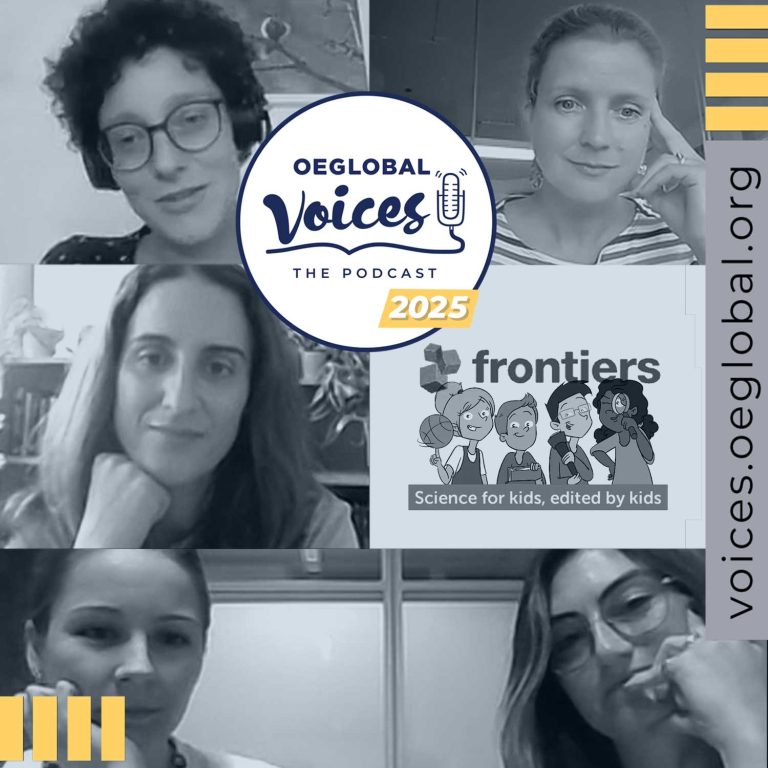
“Frontiers for Young Minds is a groundbreaking science engagement platform that redefines academic publishing by involving young readers in the peer review process. With contributions from leading scientists, including Nobel laureates, the platform empowers children aged 8-15 to critically engage with scientific content, boosting their self-confidence and analytical skills. Its multilingual expansion and strong community-driven approach break away from traditional, often inaccessible academic publishing, offering young learners a unique space to explore, question, and shape the frontiers of science.”
Jury quote from BolognaRagazzi CrossMedia Award 2025 Winners
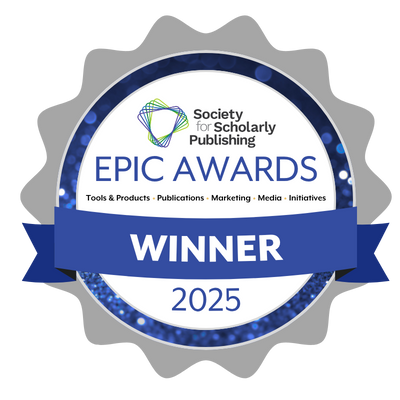
Silver Award for Excellence in Magazines at the inaugural EPIC Awards given by the Society for Scholarly Publishing (May 2025)
